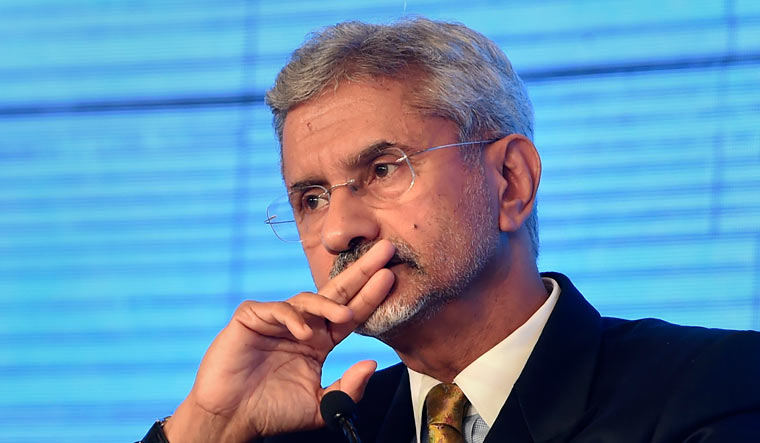There is a new acronym in the Ministry of External Affairs' arsenal, this time summing up India’s objectives as a non-permanent member at the United Nations Security Council—NORMS: a new orientation for a reformed multilateral system.
“Ten years since we were last elected, we are facing very different challenges to international peace and security,’’ said Minister S. Jaishankar as he released a brochure outlining India’s vision during election campaign for non-permanent member of the UNSC.
The elections are due to be held on June 17. As the single endorsed candidate in Asia-Pacific region, India’s elevation is more than likely. The brochure is to give countries an idea of India's vision plan. In his brief remarks, Jaishankar made it clear that India would play the balancing role in international world. “One, the normal process of international governance has been under increasing strain as frictions have increased,’’ he said. “Traditional and non-traditional security challenges grow unchecked. Terrorism is the most egregious of them all. Three, global institutions remain unreformed and under-represented, they are therefore less able to deliver.’’
The COVID-19 pandemic and the economic repercussions would “test the world’’ like never before, he said. Emphasising India’s role as the “voice of moderation’’, and an advocate of dialogue’’, Jaishankar said India would focus on "new opportunities for progress”. India is a "rule-abiding democracy and a positive contributor to the security of the global commons”; India, the brochure states, will work together with partners to bring "innovative and inclusive solutions to foster democracy”. India also calls for "greater involvement of women and youth” to shape a new paradigm.
This is not the first time Jaishankar has spoken out against the functioning of the UN. Like the WHO, India has been pushing for UN reforms. Speaking during a panel discussion at the Munich Security Conference in Germany a few months ago, Jaishankar said: “The UN has been far less credible than it has been in history, which is not entirely surprising, because when you look at it, in your daily life there are not too many things which are 75 years old and still as good as they were.”
India’s role as the stabiliser or as a promoter of dialogue—samvaad—has been part of Prime Minister’s Narendra Modi’s vision of India. At the Raisina Dialogue earlier this year, Jaishankar said, speaking about India’s role, “There are already enough forces of disruption in the world. Somebody needs to make up a bit.”
The COVID-19 crisis has given Modi a chance to put this into practice. A trailer, in a way, with his reach out to SAARC as well as his participation at the NAM summit. India will also work towards streamlining UN peacekeeping. "We must ensure, greater clarity, direction and professionalism in UN Peacekeeping Operations,” the brochure read.
India’s term will begin on January next year. This will be the eighth time that India will become a non-permanent member.



